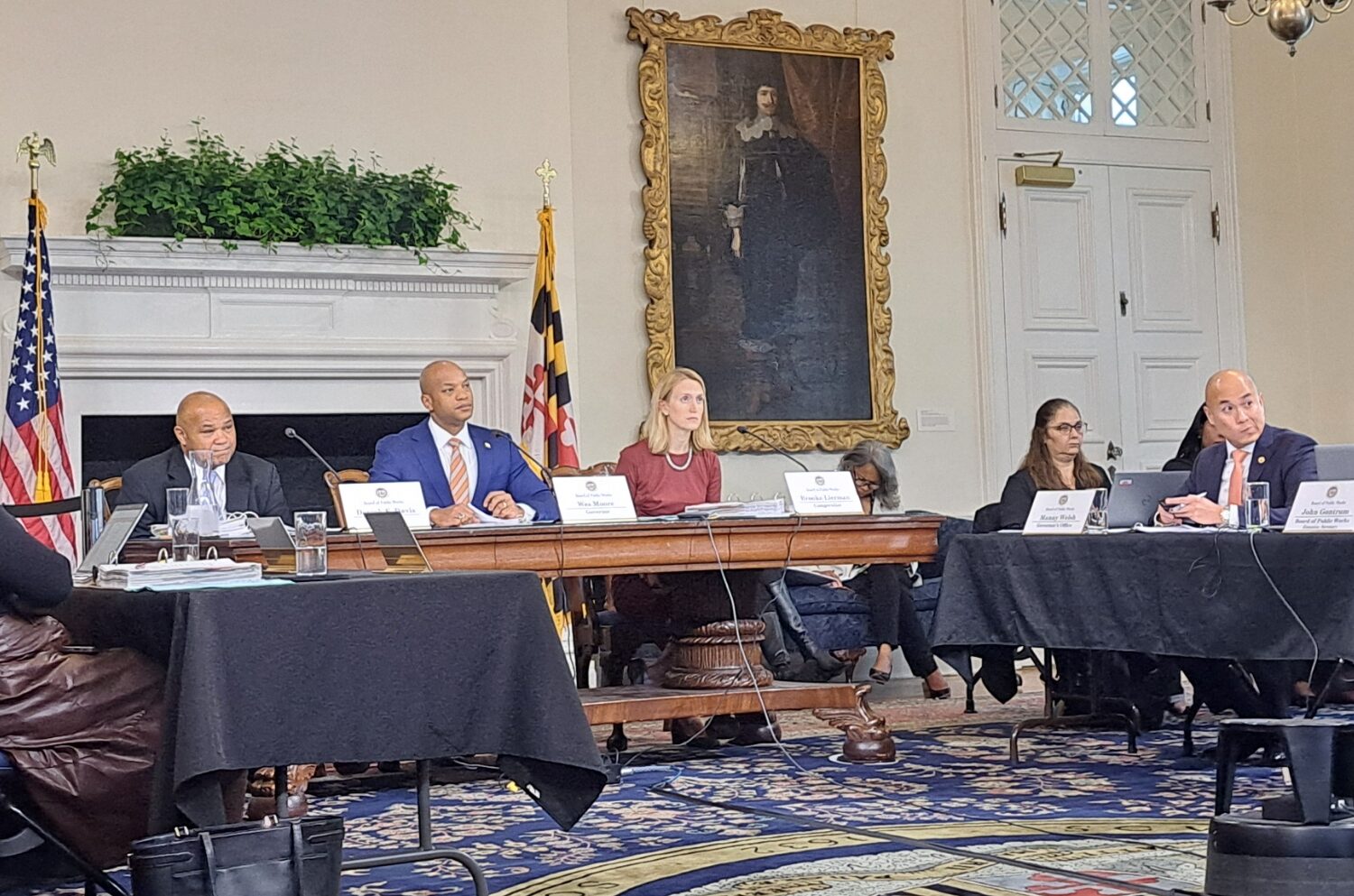Top state officials approved a $2.75 million settlement on Wednesday after a federal investigation turned up evidence of discriminatory hiring practices by the Maryland State Police.
The U.S. Department of Justice conducted a two-year investigation into state police hiring practices for a violation of Title VII, which prohibits discrimination against employees or applicants based on race, color, religion, sex and national origin.
The investigation found that the state police engaged in discriminatory practices against Black and female applicants, agency officials acknowledged in a meeting of the Maryland Board of Public Works on Wednesday.
The DOJ said that MDSP written tests disproportionately impacted Black candidates, while their physical fitness tests disproportionately impacted female candidates. The tests discriminated against candidates while failing to “meaningfully distinguish between applicants who can and cannot perform the position of Trooper,” according to a Department of Justice press release.
“Discrimination in any form has no place within the Maryland State Police, and it will not be tolerated,” Col. Roland Butler Jr., superintendent of MDSP, told the board Wednesday. “We’re committed to making meaningful and lasting change … [and] to develop new policies and procedures that ensure equitable treatment for all applicants.”
The board – made up of Gov. Wes Moore, state Comptroller Brooke Lierman and Treasurer Dereck E. Davis – signed off on the settlement. The agreement must also be approved by a federal court before moving forward.
In response to the investigation, MDSP will change its current testing methods to prevent future discrimination in hiring, but the new practices will not be ready until after the next two MDSP classes start, Butler said. To adapt, he said, MDSP intends to change existing standards, including eliminating time requirements from different portions of the physical fitness tests.
Members of the Board of Public Works raised concerns about this interim period, with Davis questioning whether the unclear guidelines would lead to more discrimination.
“Now it becomes subjective, so doesn’t that lend itself, potentially, to be more discriminatory?” Davis asked. “Now we don’t know what’s good or what’s not as it relates to that time.”
Butler assured Davis that strict monitoring of who passes and fails the tests would be in place, allowing MDSP to monitor areas of improvement.
“We won’t have the other test in place at this time,” Butler said. “However, we’re relaxing the standards that we have … We will be allowed to use those tests under the condition that we provide strict monitoring to see what the results are, to see who’s passing, who’s failing and we do think that we’ll get a larger pool of applicants when we start to look at how we measure that test and how we evaluate it.”
Officials said the new tests would emphasize fairness while maintaining safety requirements, including a test that would receive ongoing validation to guarantee it was modern, fair and relevant, as well as an aptitude test to look for integrity, self-motivation, critical thinking and judgment skills.
The settlement involved 48 Black and female individuals who were prevented from becoming state troopers due to the discriminatory practices, according to Butler.
Since his appointment in 2023, Butler said, he has worked to evaluate and modernize the agency’s practices.
“I remain steadfastly committed to cultivating a culture that will ensure inclusiveness,” Butler said, “one that allows the fulfillment of our mission, of values centered around integrity, fairness, and service.”

